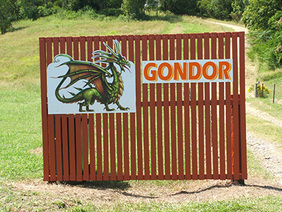
We are operational! Bigger and better things to come.
The next workshop is Plotting on April 18th.
So what exactly is a plot?
A Plot is the bare bones of a story - it a series of events which is driven by the protagonist’s attempt to resolve a source of conflict. The protagonist’s actions and reactions to a set of problems, obstacles, or ordeals guide the plot.
To me, to write a story of any size without a plan or plot is like going on a journey without a map or GPS. But some writers say they feel restricted by the structure of plot. That doesn’t have to be the way it works.
There are two methods of preparing to write a story.
The Intuitive Approach
Sometimes called ‘writing by the seats of your pants’.
With this approach, you set off on a journey with no idea of where you are going, allowing the words to carry you along as they will. This can seem like the ideal way to go, but most writers find it hard going. I believe this is the cause of most writer’s block.
Others start knowing only their beginning and their end. Then, as they are writing, they develop the story further as new ideas come. This is where they sometimes come unstuck. Without a sequence of events to follow, they get lost.
The main problems with this method is that sometimes they can get so stuck they can’t get going again, or they end up with a lot of material that must be cut later, thereby wasting time and energy. The questions that they ask to try to get back on track are the same ones they would ask when plotting the story, so why waste time being stuck. Ask them at the start.
The other method is the Analytical Approach or Plotting
Some writers plot out the entire story before they write a word, complete with characters sketches, chapter-by-chapter and scene-by-scene breakdowns, and conclusions.
Such planning can help with the actual writing process because they know what they are writing about – and it can help them tie up any loose ends. However, some people feel it limits them to only writing what was contained in the plot, and doesn’t leave room for any of those great leaps of the imagination that can take them in all sorts of surprising directions. This doesn’t have to happen. Plot lines are only a guide. I adjust my plot line to suit where the story has changed before I write the next chapter. This way I know exactly what I want to happen in that scene.
The plotting workshop shows you how to build a story structure that will give you direction but not restrict the creativity of the process of developing your story. It covers the questions you need to ask to move the story forward, scene by scene.
To book phone 54 981 332 or go to http://gondorwriterscentre.com/workshops.html
This is followed by;
A two day workshop: April 25th and 26th from 10 am to 4 pm both days. Tutor: Sheryl Gwyther. Day one: Crafting unforgettable characters: Story characters underpin their stories plot. If not fully developed they’re like paper-dolls. This hands on workshop will teach you how to create engaging, believable characters.
Day two: Writing successful stories. In this workshop, you will write a story using characters you developed yesterday.
Two day workshop cost $160 per person. Accommodation can be arranged if required. Ask for the cost when you book.
Phone 54 981 332 to book, or go to www.gondorwriterscentre.com for more information on these workshops and the rest of the year’s program.
